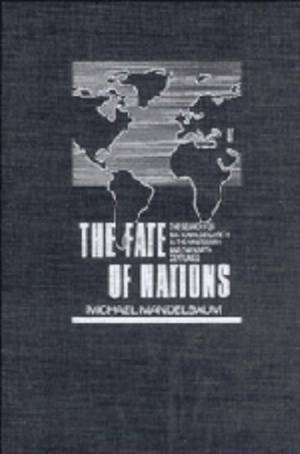
- Afhalen na 1 uur in een winkel met voorraad
- Gratis thuislevering in België vanaf € 30
- Ruim aanbod met 7 miljoen producten
- Afhalen na 1 uur in een winkel met voorraad
- Gratis thuislevering in België vanaf € 30
- Ruim aanbod met 7 miljoen producten
Zoeken
The Fate of Nations
The Search for National Security in the Nineteenth and Twentieth Centuries
Michael Mandelbaum
Paperback | Engels
€ 67,95
+ 135 punten
Omschrijving
The Fate of Nations identifies and illustrates the basic varieties of security policy, as well as re-interpreting six well-documented historical episodes: Great Britain and the nineteenth century balance of power system; France between the two world wars; The United States during the Cold War; China from the Communist victory in 1949 to 1976; Israel from the founding of the state in 1948 to the peace treaty with Egypt in 1979; Japan and the international economic order after 1945. Professor Mandelbaum shows that, while no state is wholly restricted by its position in the international system, neither is any entirely free from external constraints. He concludes that in this century, national security policies have been more prudent, even when unsuccessful, than they often retrospectively have been judged.
Specificaties
Betrokkenen
- Auteur(s):
- Uitgeverij:
Inhoud
- Aantal bladzijden:
- 430
- Taal:
- Engels
Eigenschappen
- Productcode (EAN):
- 9780521357906
- Verschijningsdatum:
- 30/09/1988
- Uitvoering:
- Paperback
- Formaat:
- Trade paperback (VS)
- Afmetingen:
- 153 mm x 229 mm
- Gewicht:
- 585 g

Alleen bij Standaard Boekhandel
+ 135 punten op je klantenkaart van Standaard Boekhandel
Beoordelingen
We publiceren alleen reviews die voldoen aan de voorwaarden voor reviews. Bekijk onze voorwaarden voor reviews.











